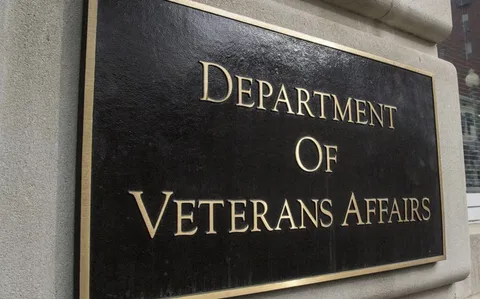WASHINGTON -- The Department of Veterans Affairs will launch its first clinical study since the 1960s into the effectiveness of psychedelic drugs as a treatment for post-traumatic stress disorder, the agency said Tuesday.
The $1.5 million study will involve veterans as test subjects who will undergo psychedelic-assisted mental health therapy in a supervised setting at VA medical centers in Connecticut and Rhode Island, the VA said.
Veterans must have a dual diagnosis of PTSD and alcohol use disorder to participate, the VA said.
The study will be conducted over five years and examine the potential therapeutic benefits of using MDMA, commonly known as ecstasy, to manage the symptoms of PTSD, a mental health disorder that afflicts individuals who have witnessed terrifying events.
"Innovative treatment options" could address "complex mental health challenges faced by veterans," said Juliana Mercer, director of veteran advocacy and public policy at Healing Breakthrough.
MDMA is a Schedule 1 drug under the Controlled Substances Act, which means it is illegal under federal law. The VA has said it is undertaking the research with prior approval from the Food and Drug Administration and the Drug Enforcement Administration.
Access to psychedelic-assisted therapy is a treatment pushed by some veterans with PTSD who have turned to treatment at medical clinics outside the U.S., where it is legal.
"We cannot afford to ignore solutions that work simply because they challenge the status quo," said Navy veteran Brandon Bryan, who traveled to Mexico for such therapy in 2022 after medications prescribed by his VA doctor did not help.
For the VA study, participants will be given MDMA while undergoing talk therapy. A second control group will receive a much lower dose of the hallucinogen, described as "an active placebo."
VA researchers will lead this clinical study at Provincetown VA Medical Center in Rhode Island and West VA Medical Center in Connecticut. The veterans will be constantly supervised to ensure their safety during research participation.
"Substance abuse is a standard coping mechanism for veterans," noted Brad Burge from Veterans Exploring Treatment Solutions. Including those with an alcohol use disorder acknowledges how common it is for veterans with mental health conditions to struggle with addiction.
Bryan shared he had inpatient admissions for addiction treatment when experiencing severe symptoms from PTSD: "I drank heavily and abused drugs before receiving psychedelic-assisted treatment."
The study's goal is to collect scientific data on safely using psychedelic compounds for treating mental health disorders. Bryan hopes this research leads to legalization within U.S., including at VA hospitals: "The VA must expand access to innovative treatments like psychedelic assisted therapy."
